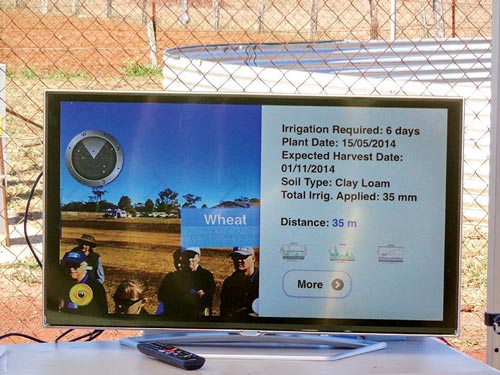In 2002, ACIAR and Gansu Agricultural University initiated a rainfed conservation agriculture research project in Dingxi County, Loess Plateau, Gansu Province. Li Lingling and her team have religiously maintained this site, gathering data and training postgraduates, while quantifying the long-term impacts of CA in a very arid environment. CIMMYT-China, in close collaboration with GAU, is developing the site into an innovation platform to demonstrate and promote sustainable farming approaches in the region, which was demonstrated through a farm walk during China Science Week.
The research station has housed and trained 100 students at a time, and is home to 10-15 postgraduates during peak sampling periods. Refurbished laboratories, a collection of field tools and Li Lingling’s 14 years of research results were displayed during the farm walk.
That increased crop water use efficiency can be achieved in this arid zone was a key message from the wheat/pea rotation system under CA, whereas zero tillage with straw removal was one of the worst performing soil treatments. The farm walk effectively demonstrated soil-water interactions under CA, no till, straw removal and continuous grazing, highlighting the benefits of CA and its effectiveness in addressing local and regional resource management issues.
Activities culminated with a postgraduate research walk where the main presenters were two Ph.D. students from Ghana who are working on greenhouse gas emissions, among other subjects.

 Capacity development
Capacity development